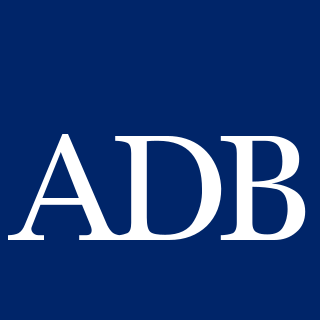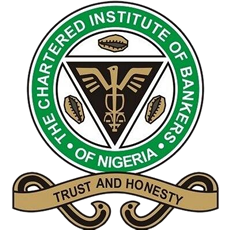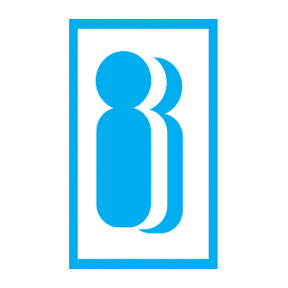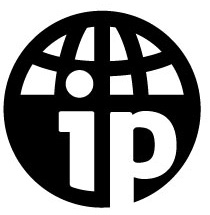 W
WThe Asian Development Bank (ADB) is a regional development bank established on 19 December 1966, which is headquartered in the Ortigas Center located in the city of Mandaluyong, Metro Manila, Philippines. The company also maintains 31 field offices around the world to promote social and economic development in Asia. The bank admits the members of the United Nations Economic and Social Commission for Asia and the Pacific and non-regional developed countries. From 31 members at its establishment, ADB now has 68 members.
 W
WThe Chartered Institute of Bankers of Nigeria (CIBN) is the umbrella professional body for bankers in Nigeria. The CIBN was incorporated in 1976 as the Nigerian Institute of Bankers. It was chartered in 1990, and is now covered by the CIBN Act 5 of 2007. The Institute is authorized to control entry into the banking profession, to set standards for bankers and to maintain professional ethics through sanctions of erring members. Corporate members include the Central Bank of Nigeria, the Nigeria Deposit Insurance Corporation and all Deposit Money Banks, Development Banks, Mortgage Banks, Micro Finance Banks and Discount Houses in Nigeria.
 W
WThe Financial Alliance for Women is a non-profit organization working as an international consortium of financial institutions interested in the female economy. Its members work in more than 135 countries to build programs that support women with access to capital, information, education and markets. The organization is headquartered in Brooklyn, New York.
 W
WThe Indian Institute of Banking and Finance (IIBF) is a public company and national apex body under the ownership of Ministry of Finance, Government of India that imparts professional education in banking and finance. It is known for its flagship courses, the Junior Associate of Indian Institute of Bankers (JAIIB)/Diploma in Banking and Finance (DBF) and the Certified Associate of Indian Institute of Bankers (CAIIB). It is the sole national apex body responsible for licensing and regulation of banking profession in India. With its membership of over 700 banks and financial institutions as institutional members and about 300,000 of their employees as individual members, IIBF is the largest Institute of its kind in the world.
 W
WThe Institute of Bankers Pakistan (IBP), established in 1951, is Pakistan's premier banking training institute, which aims to develop and groom a cadre of banking and financial services professionals on continuous basis. It is an ISO-9001-2000 Certified Organization. IBP has its head office in Karachi.
 W
WThe National Institute of Banking and Finance (NIBAF) is a subsidiary of the State Bank of Pakistan (SBP) head by the Managing Director, a Board of Directors and the Governor of State Bank of Pakistan. NIBAF, a non-profit organisation, aims at providing training and development to central and commercial bankers at national as well as international level. One of its important roles is to develop human capital of SBP and its subsidiaries. It has trained 140 participants from friendly countries through 22 weeks of training during the financial year 2006-07.
 W
WThe New Development Bank (NDB), formerly referred to as the BRICS Development Bank, is a multilateral development bank established by the BRICS states. According to the Agreement on the NDB, "the Bank shall support public or private projects through loans, guarantees, equity participation and other financial instruments." Moreover, the NDB "shall cooperate with international organizations and other financial entities, and provide technical assistance for projects to be supported by the Bank."
 W
WWomen's World Banking is a nonprofit organization that provides strategic support, technical assistance and information to a global network of 55 independent microfinance institutions (MFIs) and banks that offer credit and other financial services to low-income entrepreneurs in the developing world, with a particular focus on women. The Women's World Banking network serves 24 million micro-entrepreneurs in 32 countries worldwide, of which 80 percent are women. It is the largest global network of microfinance institutions and banks in terms of number of clients, and the only one that explicitly designates poor women as the focus of its mission.
 W
WThe Inspection Panel is an independent accountability mechanism of the World Bank. It was established in September 1993 by the World Bank Board of Directors, and started operations on August 1, 1994. The Panel provides a forum for people who believe that they may be adversely affected by Bank-financed operations to bring their concerns to the highest decision-making levels of the World Bank. The Panel determines whether the Bank is complying with its own policies and procedures, which are designed to ensure that Bank-financed operations provide social and environmental benefits and avoid harm to people and the environment. The Inspection Panel was the first body to promote accountability among international financial institutions through this community-led, or “bottom-up”, approach which is complementary to the “top-down” forms of accountability, such as evaluation initiated by the World Bank itself. Building on this example, other multilateral and regional financial institutions have established similar accountability mechanisms as part of broader efforts at sustainable and equitable development.
 W
WThe World Savings and Retail Banking Institute is an international banking association. It currently gathers 100 members in 80 countries throughout the world, comprising approximately 6760 savings and retail banks. At the start of 2018, total assets of WSBI members amounted to USD14,000 billion.